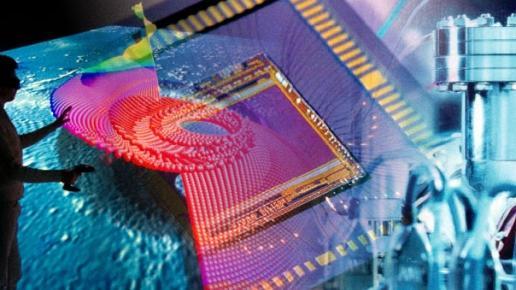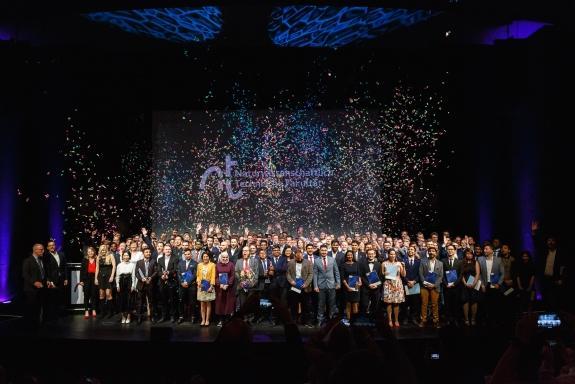Computer Science
Bachelor of Science (B.Sc.)
Whether it's your smartphone, autonomous driving, intelligent power grids or modern medical technology - it all depends on intelligent software and powerful AI. With your computer science degree, you will be right in the middle of this exciting development and actively help shape the technologies of tomorrow.

The study program in brief
In the Bachelor's degree course in Computer Science, you will learn the basics, but also specialize in a particular field. In the first semesters, you will learn various programming and modeling languages and the mathematical, theoretical and technical basics. You will then build on this with in-depth foundations in computer science, e.g. computer architectures, computer networks, operating systems, software engineering, database systems and machine learning. You can apply these basics in three (hardware and software) practical courses. In addition to the Bachelor's thesis, 20-25% of the study volume is reserved for your chosen area of specialization. You can choose from Embedded Systems, Visual Computing, Complex and Intelligent Software Systems and Medical Informatics.
Information about the degree program
The Bachelor's degree program in Computer Science is roughly divided into a compulsory and a specialization area:
- The compulsory area includes modules that provide basic knowledge in the areas of mathematics, programming, technical, practical and theoretical computer science, as well as soft skills.
- In the specialization area, you can acquire in-depth knowledge in one of the following areas, depending on your interests:
- Embedded Systems: technical (hardware-related) computer science, embedded systems.
- Visual Computing: computer graphics, image processing, visualization, pattern recognition, machine learning, computer vision.
- Complex and Intelligent Software Systems: software engineering, intelligent systems, pattern recognition.
- Medical Informatics: Medical fundamentals, computer science applications in medicine.
The course is designed so that it can be studied full-time within six semesters (or seven semesters in the dual study program). The timetable is roughly divided into two phases:
-
In the first three semesters, you will study almost exclusively compulsory modules.
An introductory module is offered for each of the four specializations as preparation for the choice of specialization, which should take place around the third semester. In the first study phase, you must study two of these introductory modules and can then choose one of the two specializations.
- From the fourth semester onwards, you can freely choose further modules from your specialization in addition to the compulsory in-depth modules. In the final semester, you will usually also write your final thesis.

